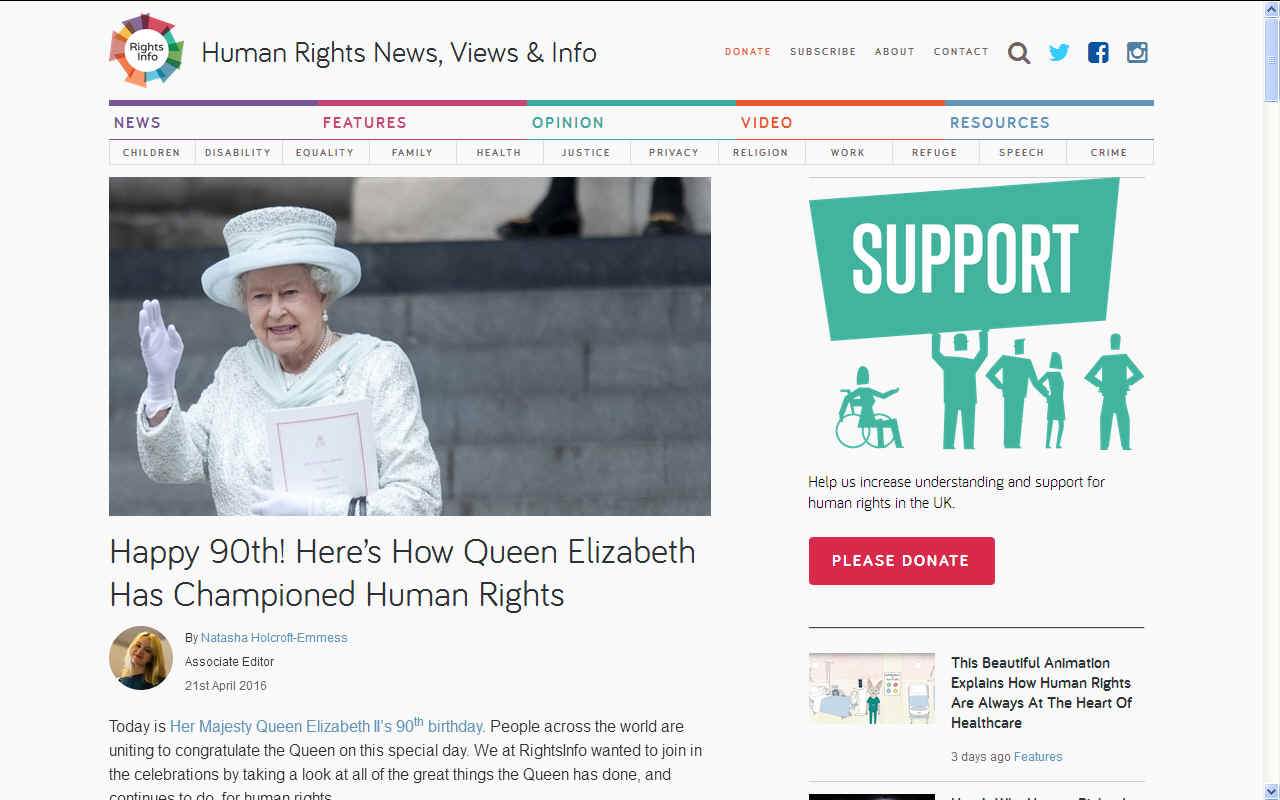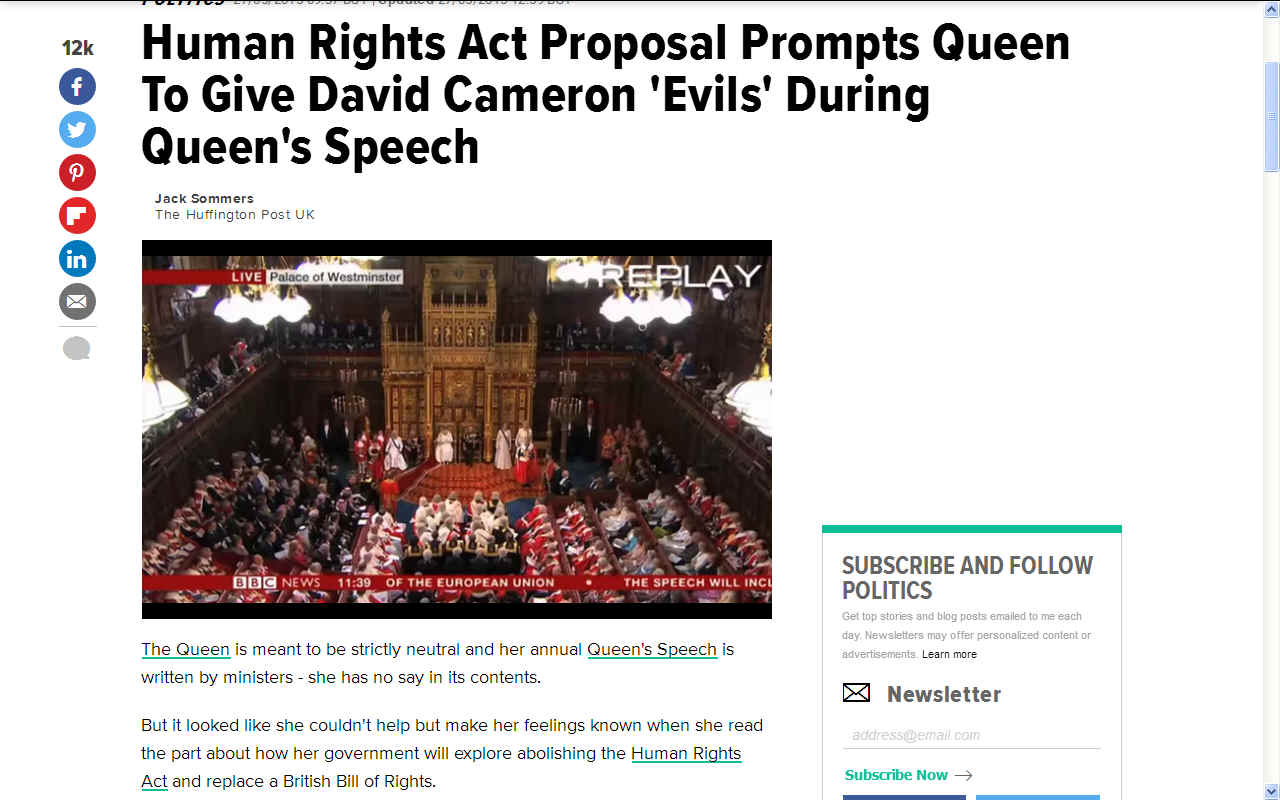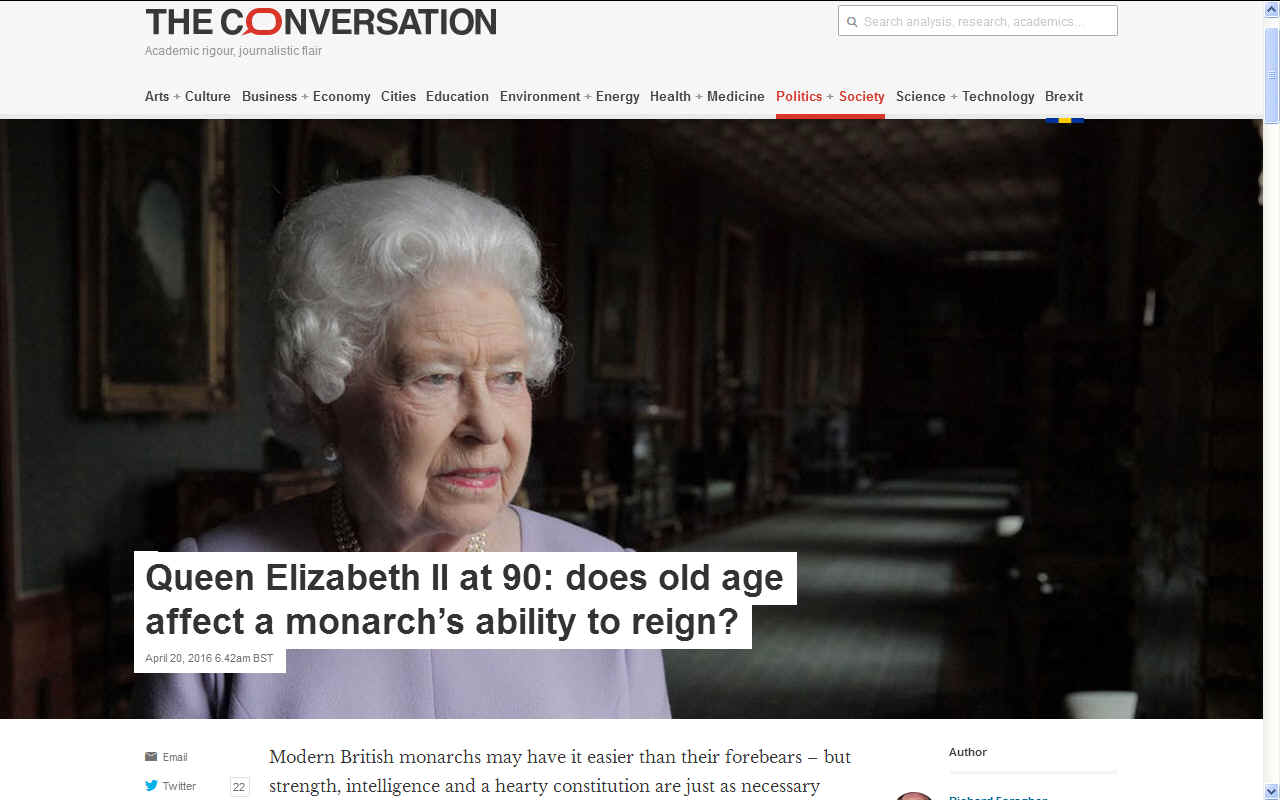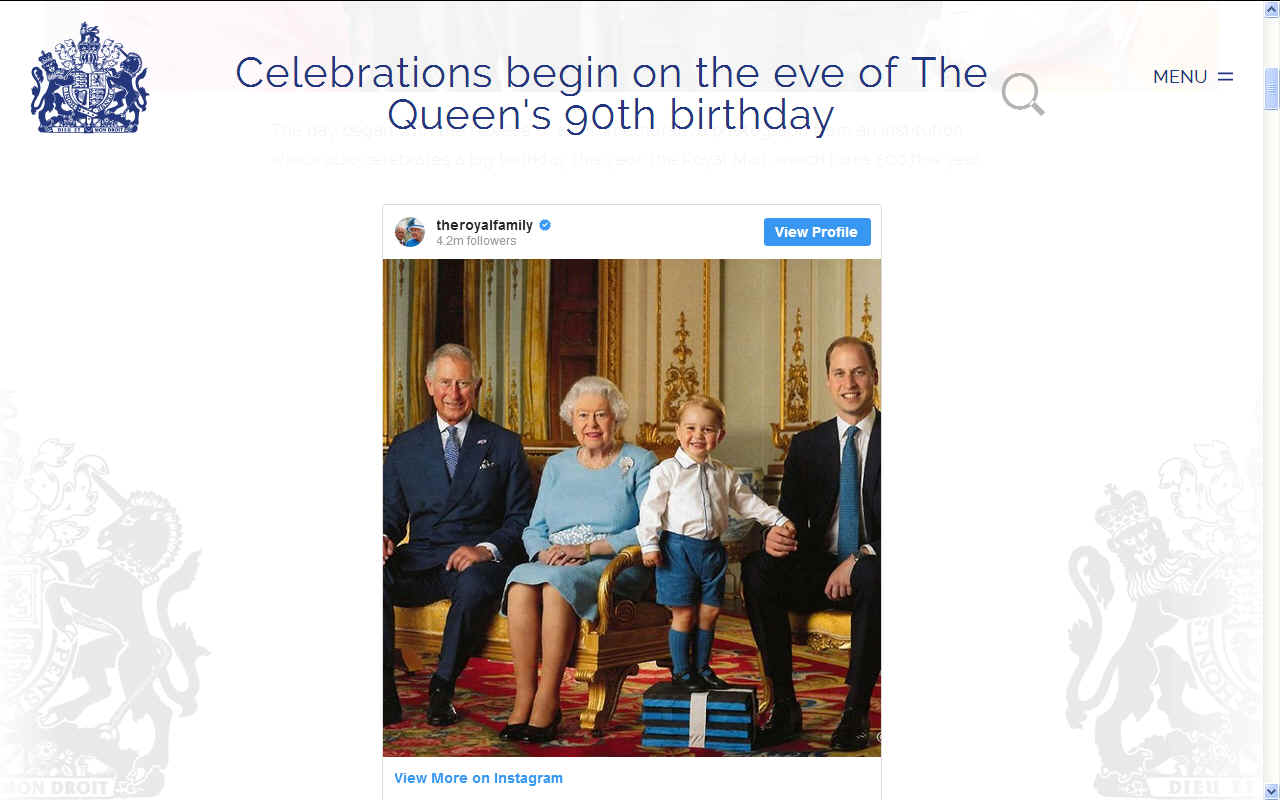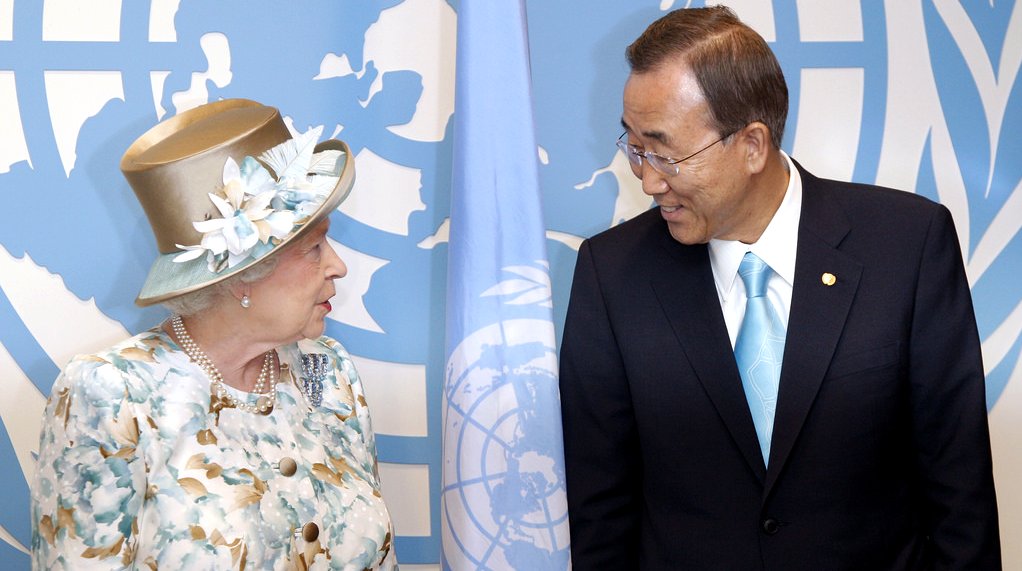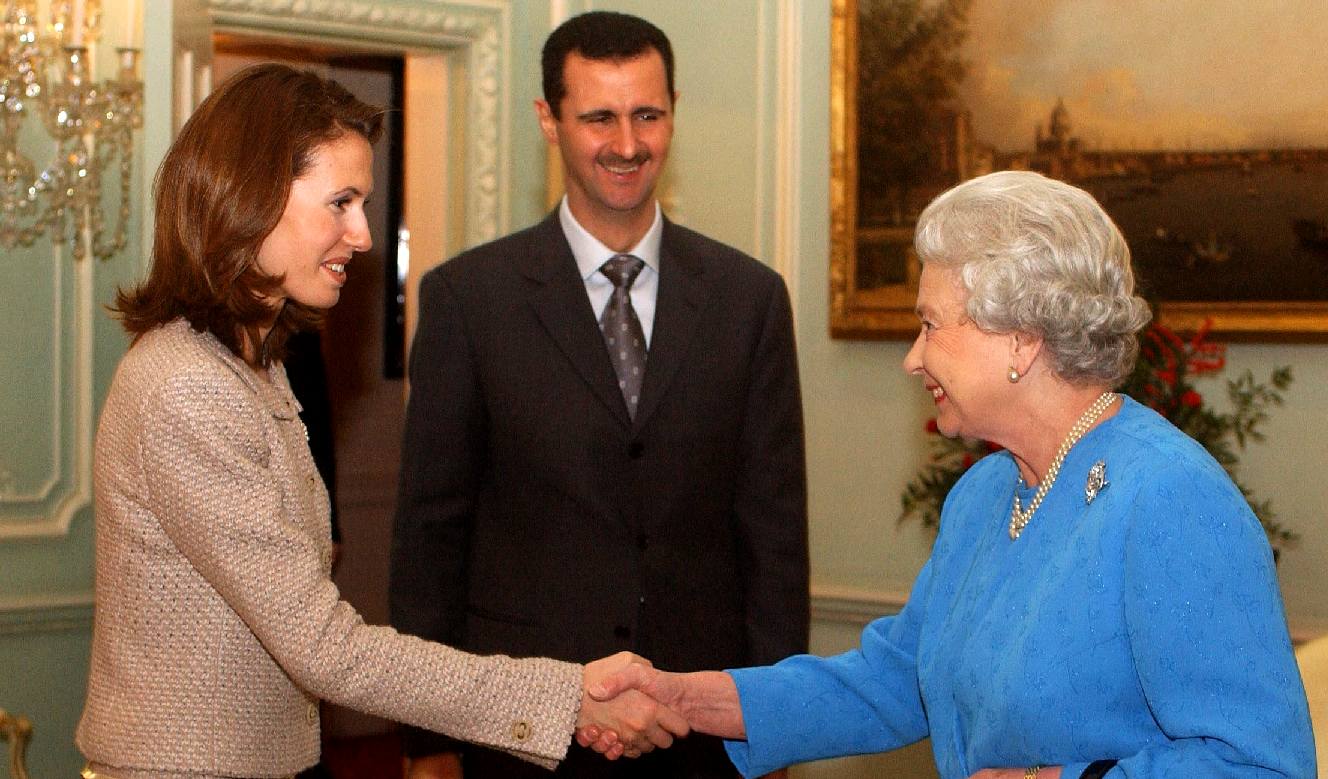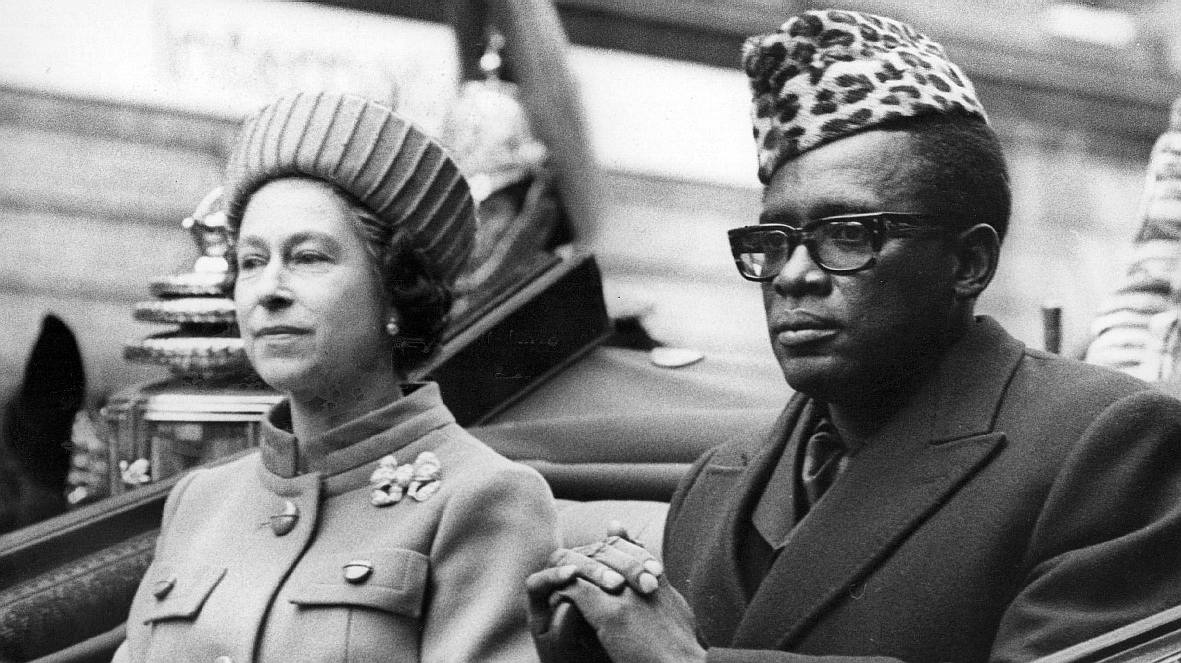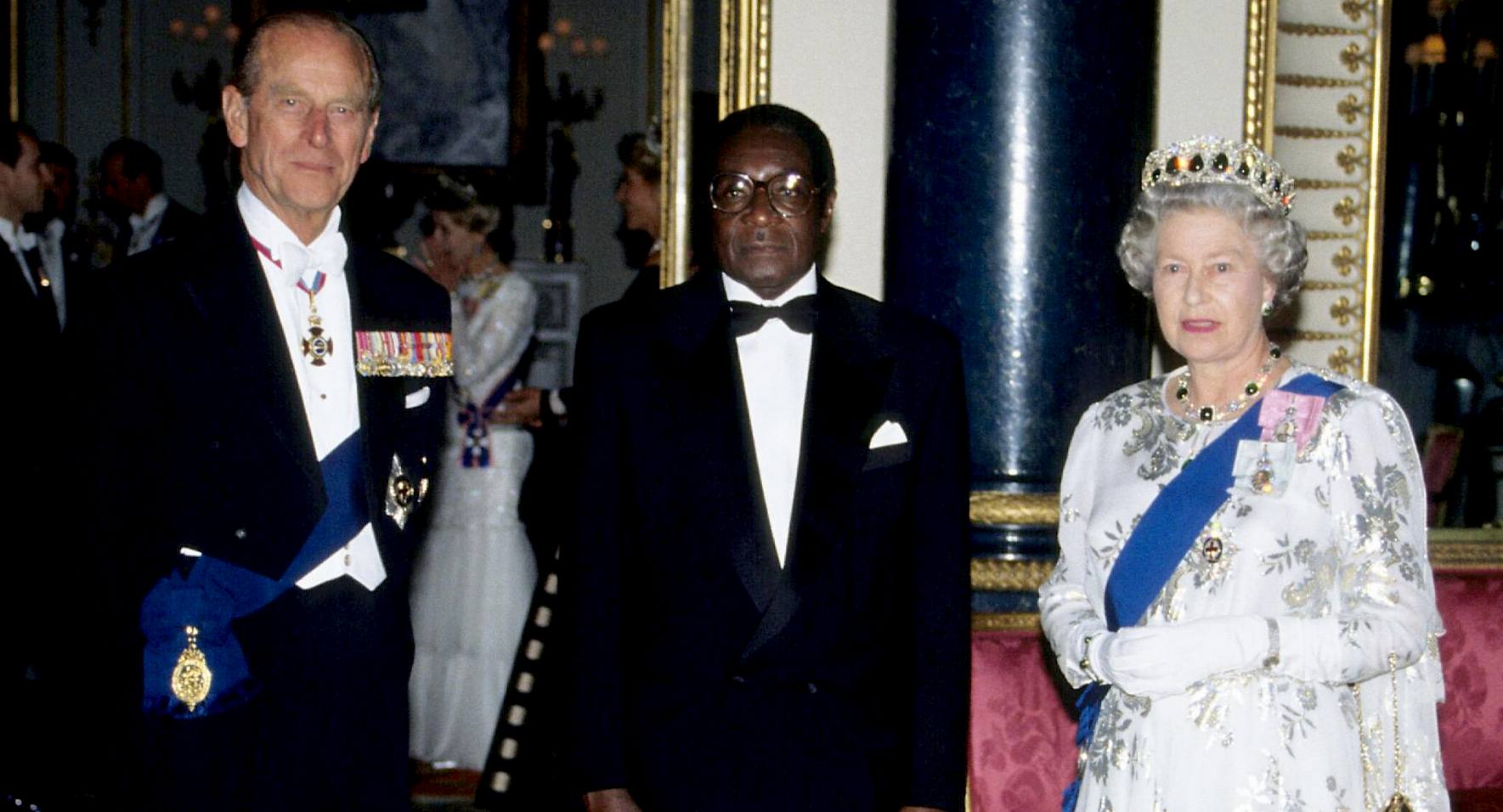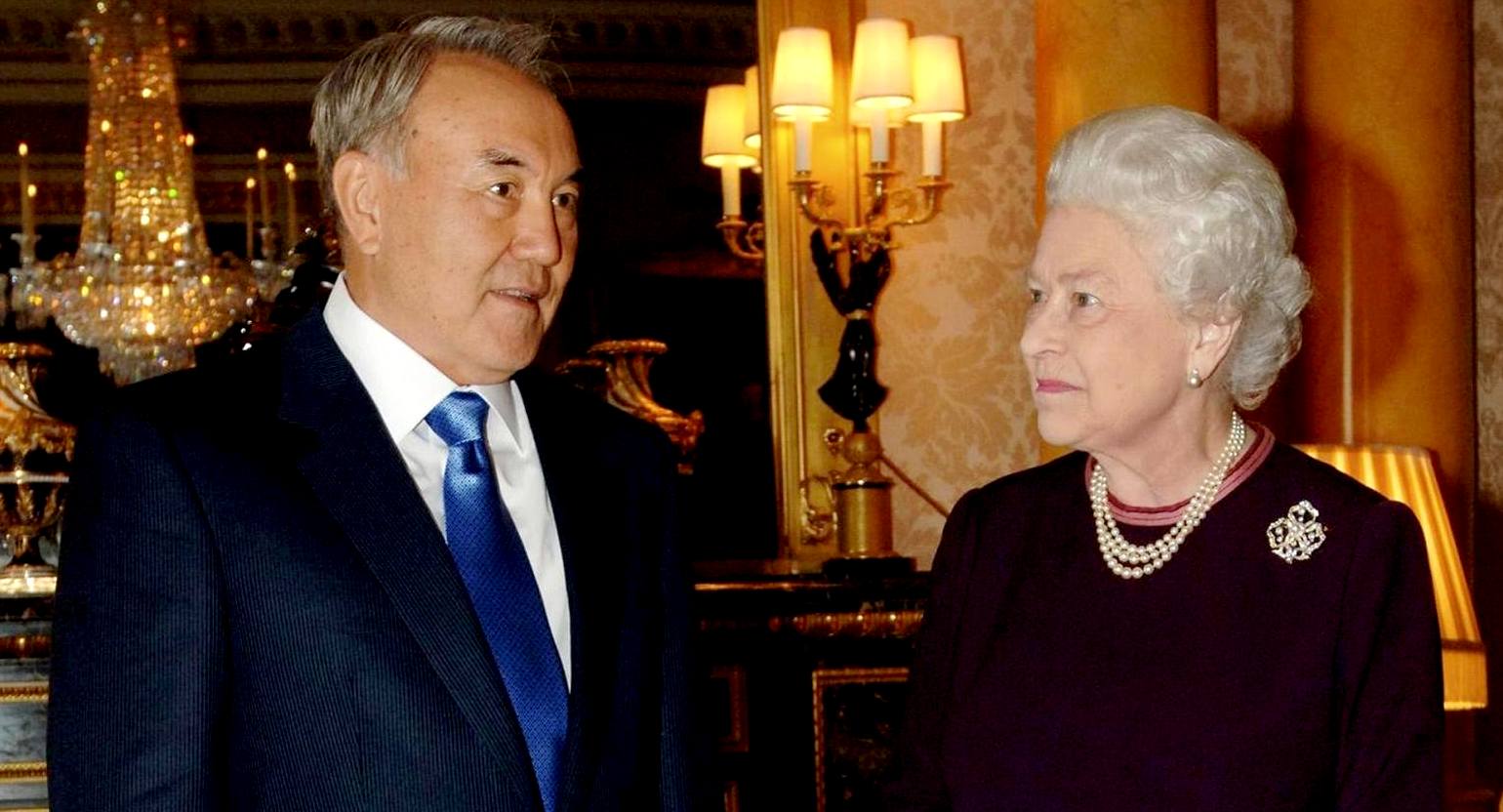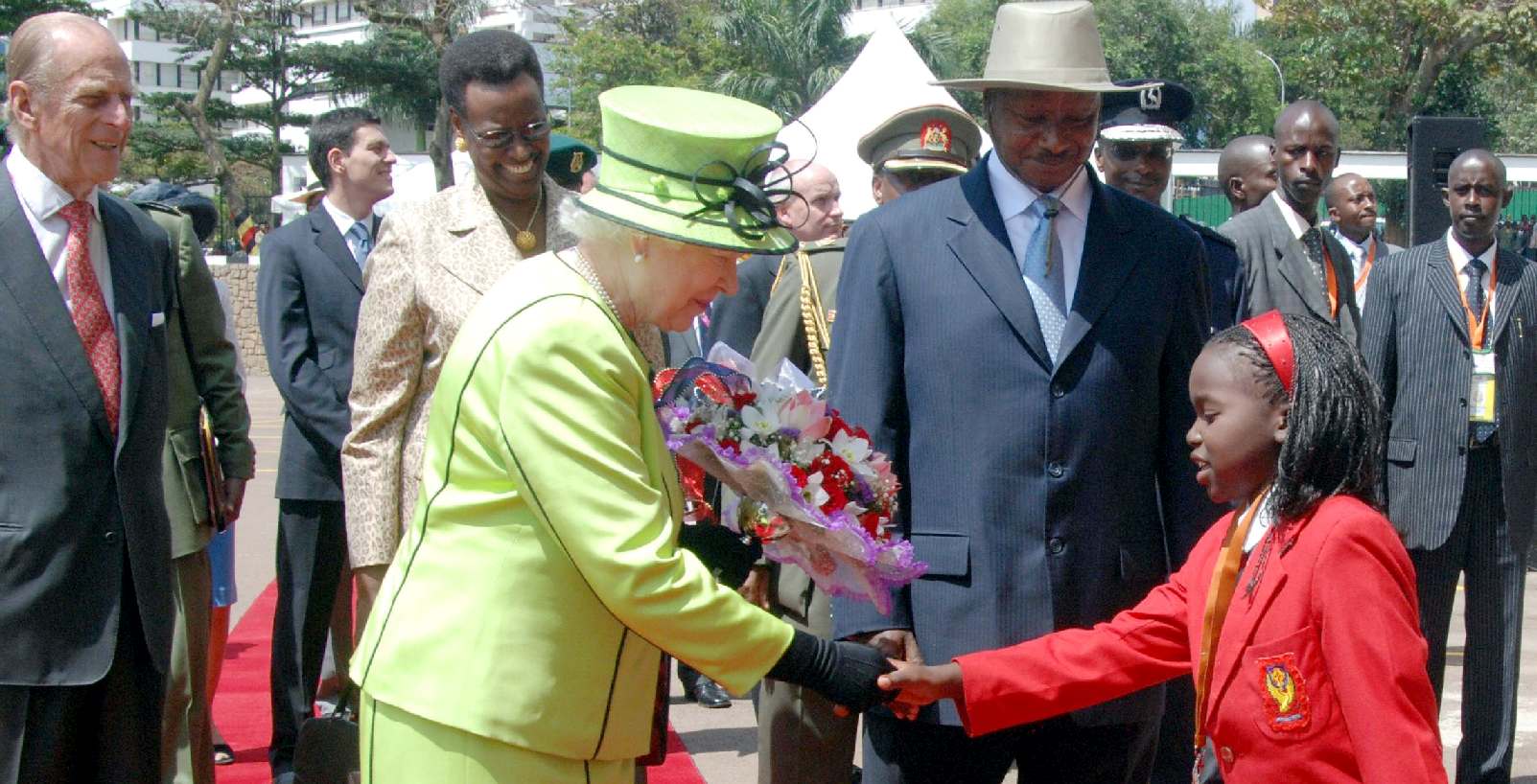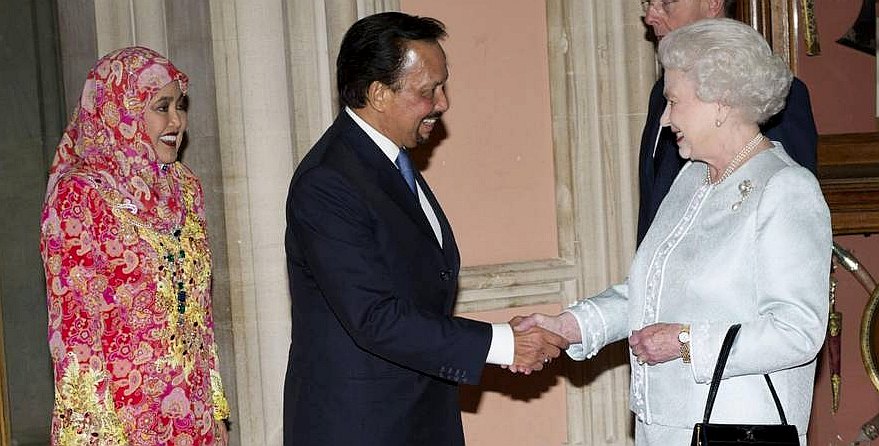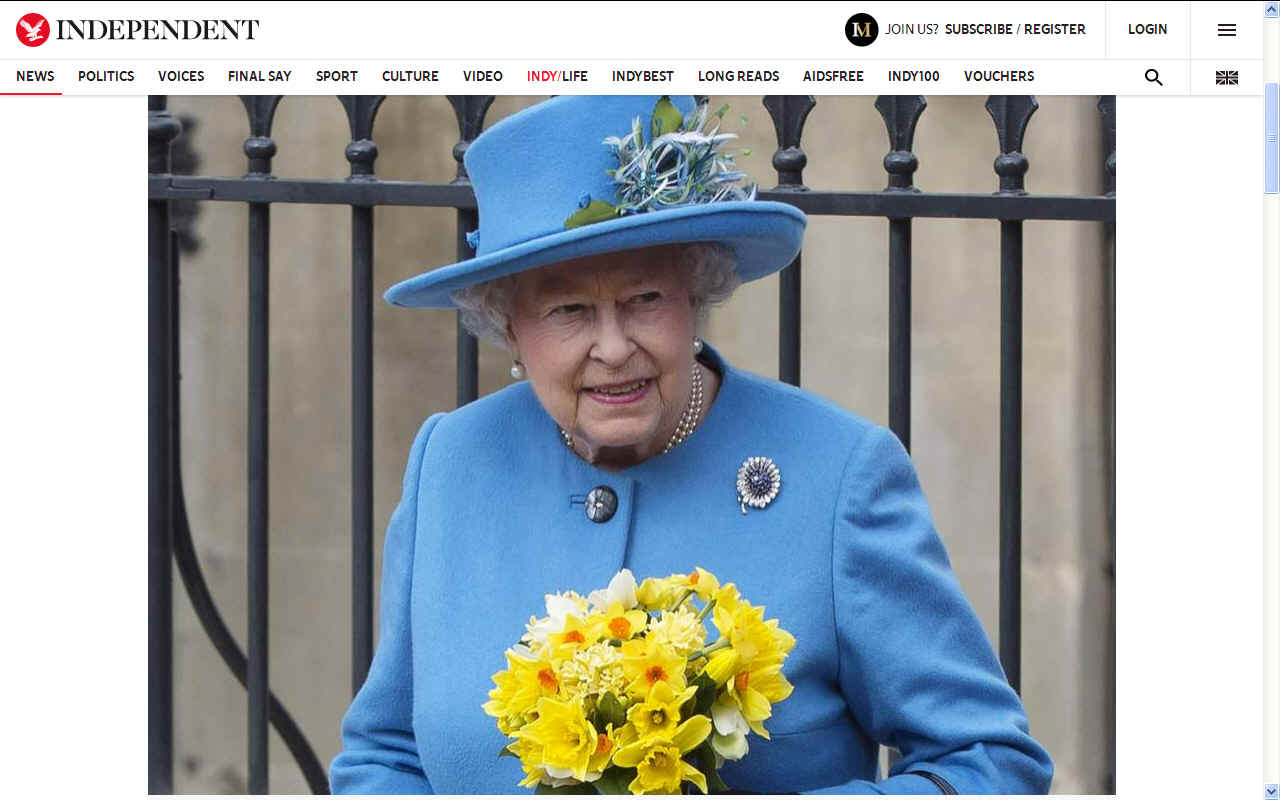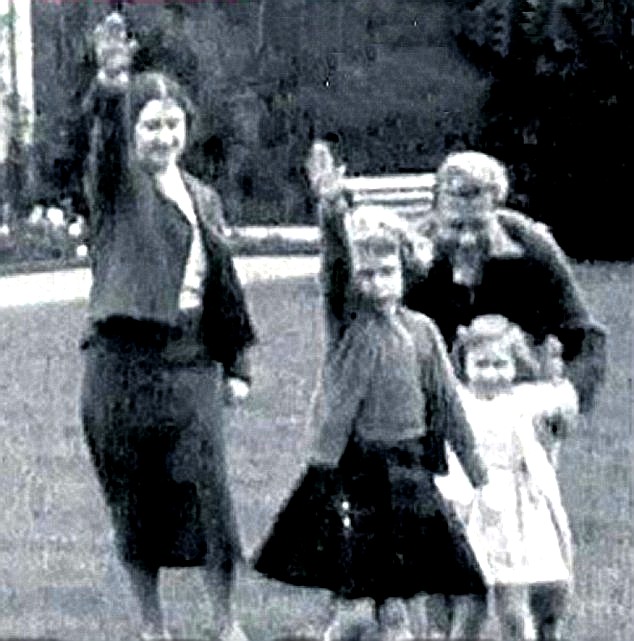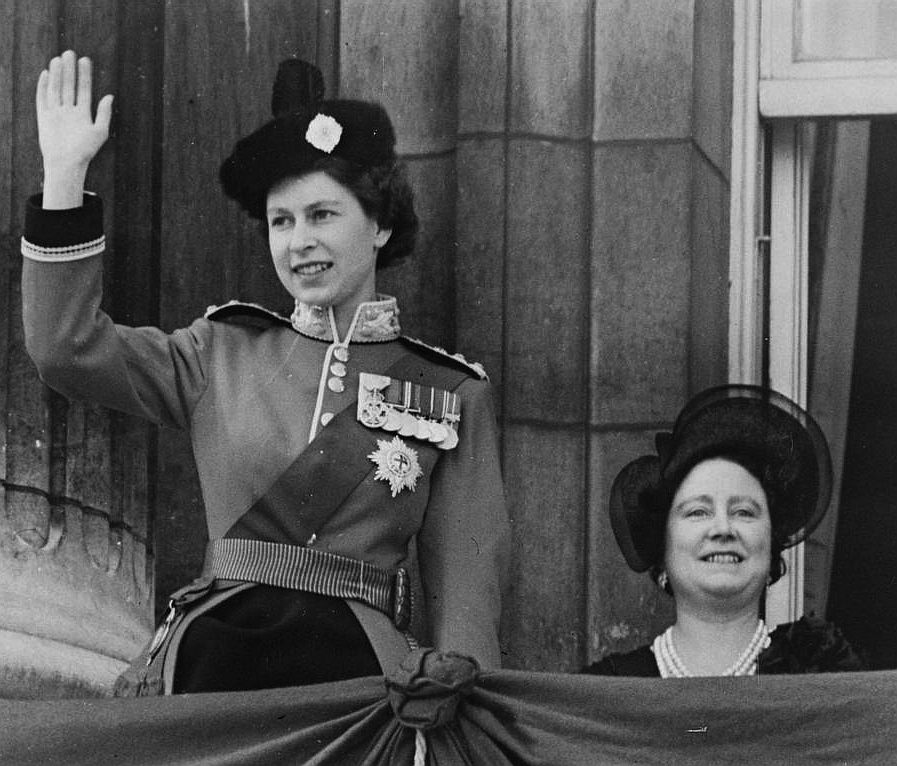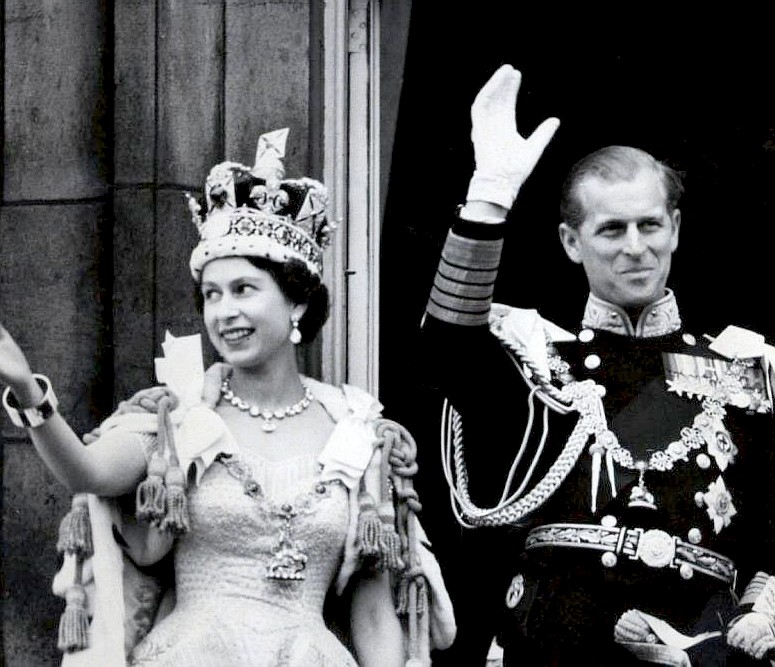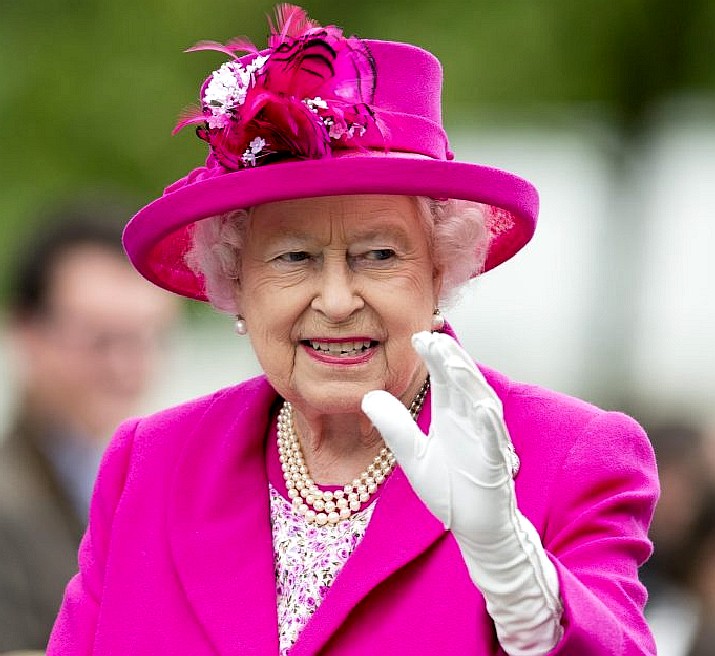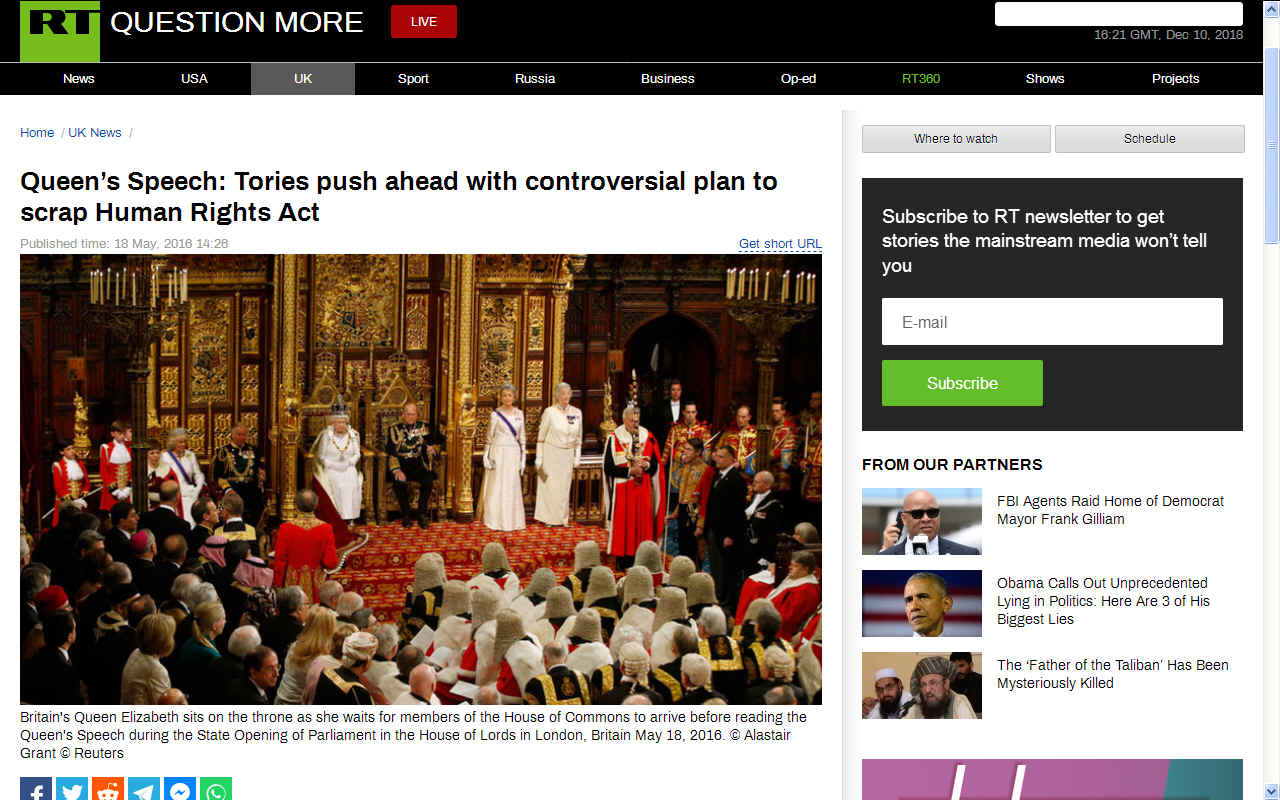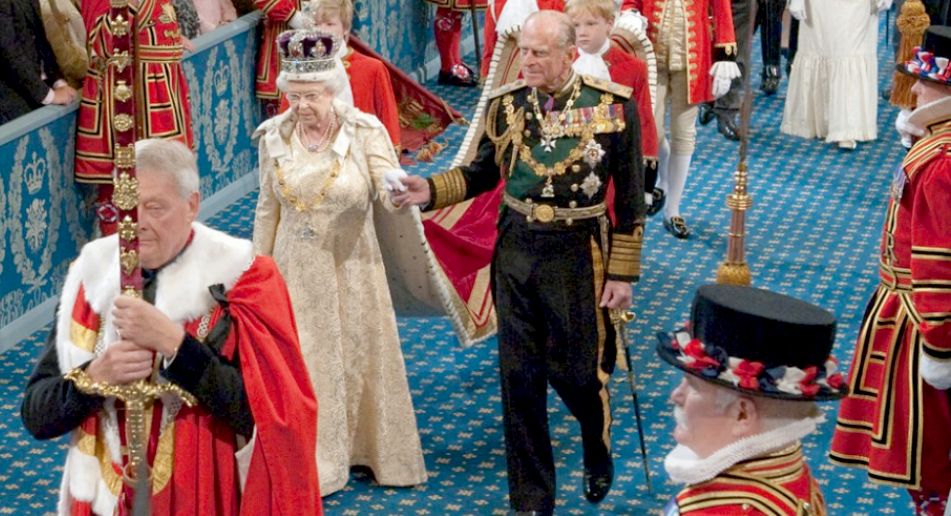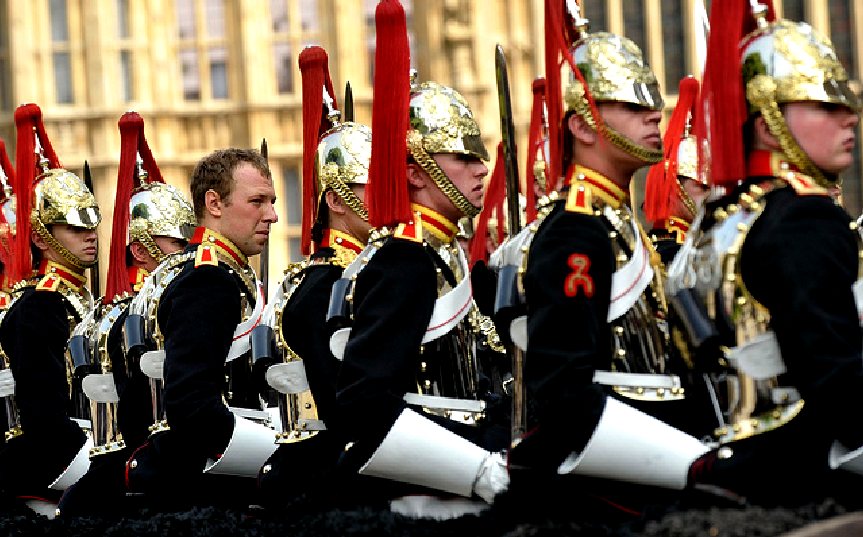|
THE QUEEN'S 90th BIRTHDAY
|
||||||||||||||||||||||
|
Where a Council conducts what amounts to an institutionalised vendetta or the State by their inaction allows such vendetta to continue unabated, the Human Rights of their victim are violated in many ways. Ultimately, it is the head of stage who is responsible. In this case it was Her Majesty Queen Elizabeth II, where there may be no effective remedy in the United Kingdom, the European Courts might step in save for their 6 month rule. The United Nations would be the ultimate Court should it transpire that despite the theoretical right of audience with the Queen or future King under the Bill of Rights 1689 turn out to be a damp squib.
Happy 90th! Here’s How Queen Elizabeth Has Championed Human Rights
Today is Her Majesty Queen Elizabeth II’s 90th birthday. People across the world are uniting to congratulate the Queen on this special day. We at RightsInfo wanted to join in the celebrations by taking a look at all of the great things the Queen has done, and continues to do, for human rights.
HUFFINGTON POST MAY 27 2015
- QUEEN GIVE DAVID CAMERON EVILS
THE CONVERSATION APRIL 20 2016
Modern British monarchs may have it easier than their forebears – but strength, intelligence and a hearty constitution are just as necessary today as they were in the Middle Ages. This may seem surprising. After all, as a constitutional monarch, Elizabeth II reigns but does not rule. She may have been given the Sword of State at her Coronation “for the terror and punishment of evildoers” but she isn’t expected to swing it herself.
By contrast, Richard the Lionheart (1157-1199) did so enthusiastically until a crossbowman eventually shot him. However Lionheart wasn’t expected to attend about 400 engagements a year, give out the Queen’s Award for Enterprise or chat to loyal subjects. Although separated by almost a millennium, both monarchs have had to manage Royal Estates as part of the job. The Queen seems the better of the two at this. Lionheart once said he would sell London if he could find a buyer.
So how well can a nonagenarian do the job of being a monarch – or, to be slightly more egalitarian, discharge the role of a constitutional head of state?
Fit for the job
Looking at her diary it seems to be a slow day when Elizabeth II doesn’t have some official duties to perform. There’s a lot of travel and standing around involved, so she need to be physically fit. She’ll need to stay mentally alert for all those constitutional briefings and regular meetings with the prime minister. And, if she’s to survive all those visits to hospitals, Elizabeth II needs a reasonable immune system.
Therefore, in social gerontology terms, the Queen needs to have the appropriate level of “work ability”. In essence this is a proper balance between the capacities of the individual and the work he or she does. Work ability subsumes a wide range of factors including the right values, attitude, knowledge and skills to discharge the job (compared to most of us the Queen has the benefits of extensive prior training and considerable work experience). However health is a major determinant of work ability in general and the royal role in particular. So just how healthy are Britain’s very old people?
At first sight the data is not encouraging. The Newcastle 85+ study of about 1,000 men and women which is roughly representative of the population of the UK found that about 90% of participants had at least three distinct clincial conditions (out of a possible score of 18). Women were between six and ten times more likely than men to have rheumatoid arthritis, osteoporosis and thyroid problems and overall had significantly higher levels of disability.
Many of the problems reported by 20-40% of this cohort could compromise the discharge of royal duties including incontinence, falling and visual impairment. Given that listening to politicians is an important part of the role, readers may wish to decide for themselves if advancing age has conferred an advantage or a disadvantage on the two-thirds of the cohort who report hearing difficulties.
High-class health
Thus, if she wishes to continue working, it might seem that Elizabeth II has the odds stacked against her. However she does have three potential advantages. Firstly she has blue blood, and in the general population there is an (approximately) linear relationship between healthy life expectancy and social class.
Women from social class I (doctors, chartered accountants, professionally qualified engineers, etc) can expect to live about 80 years in a fairly good state of health. In contrast, healthy life expectancy at birth for unskilled women is only about 69 years. Thus Elizabeth II has a good chance of being healthier than one of her average subjects.
Secondly, data from the 85+ study indicate there is a good chance that she feels positive about her health in general (and indeed the same study shows she is less likely than a man of the same age to develop atherosclerosis or cancer). Thus, palace coup d'état being a thing of the past, she may feel she can continue working.
Lastly, unlike those of her ancestors who continued to reign into old age such as Edward I (who died at 68) or Elizabeth I (who died at 70), Elizabeth II lives in the era of science. We now know that ageing occurs because the fundamental mechanisms which keep us in good health start to fail. Enough is already known about these to use that knowledge to improve vaccination responses in the elderly using a selective inhibitor of the TOR protein which may also be beneficial for cognitive impairment. A major study aimed at improving late life health using a cheap and simple drug – metformin – is also planned.
While an enhanced immune system is certainly a bonus to a older monarch who spends a lot of time opening hospital wards, it is equally valuable to those of us who would rather avoid them. Indeed if the full potential of the new science of ageing can be translated into clinical practice, then a time in which inclination, rather than ill health, is the primary determinant of remaining in work may be nearer than you think. Which may or may not be good news for the Prince of Wales.
HUMAN RIGHTS AT THE CENTRE OF THE COMMONWEALTH
Queen Elizabeth demonstrates the UK’s commitment to democracy, human rights and the rule of law (that is, the idea that laws should govern what we do) through her role as Head of the Commonwealth.
The Commonwealth is an organisation of 53 independent states. The Queen has stated that the Commonwealth is united by “our shared values of peace, democracy, development, justice and human rights”.
The Queen signed the
Commonwealth Charter in 2013. The Charter explicitly promotes freedom of
expression, gender equality and the importance of young people – all values which have
human rights at their heart. The Charter states:
RESPONDING TO THE HORRORS OF WAR
A
PATRON OF CHARITIES PROMOTING HUMAN RIGHTS AIMS
Secretary-General Ban Ki-moon (right) meets with Queen Elizabeth II of the United Kingdom.
SUPPORTING THE UNITED NATIONS
ARTICLES - UNIVERSAL DECLARATION OF HUMAN RIGHTS
THE INDEPENDENT
APRIL 18 2016
- QUEEN'S
BIRTHDAY: SIX DICTATORS & LEADERS WITH POOR HUMAN RIGHTS RECORDS
As Britain’s longest reigning monarch in history, the Queen has witnessed pivotal moments in history, from the fall of the British Empire and the Berlin Wall to the arrival and departure of 12 British prime ministers.
Since coming to the throne at the tender age of 25, Her Majesty has also come into contact with a number of key political figures of the last century. In turn, the Queen has found herself in close quarters with some of the world’s most feared dictators and leaders with less than perfect human rights records.
Here is a selection of the most contentious figures the Queen has cordially shaken hands with:
President Bashar al-Assad
Mobutu Sese Seko
Robert Mugabe
Nursultan Nazarbayev
Yoweri Museveni
Hassanal Bolkiah
UK VIOLATIONS
In Britain we have our fair share of human rights violations. We have no Article 1 and no Article 13 in our Human Right Act 1998. We have no right of appeal from the Crown Court to the Appeal Court. We have the Sexual Offences Act 2003 that violates Article 6 in that a person is presumed guilty if accused of a sex crime, where Article 6 insists that a person should be presumed innocent. We have Legal Aid rates that are so low, that the accused may not be properly defended. Prisoners are not allowed to vote. Prisons violate anti-smoking in public places statute, violating Article 14.
This is just a small example of what is wrong with Britain. It is not so Great is it? No wonder our head of state has no problem meeting some of the butchers of the world. In some cases it might be better to just admit these abuses and resign from the United Nations.
The Queen is all right Jack. She is above the law. She cannot be prosecuted and does not have to give evidence in any court of law. Wow! Is it not time for a written constitution to level the playing field. Nobody should be above the law.
HOW OLD IS THE QUEEN?
RT.COM 18 MAY 2016 QUEEN'S SPEECH HUMAN RIGHTS
CONSERVATIVE BACKTRACK - Human rights groups have condemned Tory plans outlined in the Queen’s Speech to scrap the Human Rights Act (HRA) and replace it with a British Bill of Rights.
Queen Elizabeth II is the oldest monarch to have reigned in Britain, with second place going to Queen Victoria who lived to the age of 81. With modern medicine and a good diet, who knows what age our Queen might live to.
THE HEAD OF STATE - The head of State is also a Mason according to the inside leaf of many yearbooks. It was a shock to learn of this, but the revelation may go some way to explaining why it is that some people get targeted by their local authorities such as Councils and the Police.
LINKS & REFERENCE
http://theconversation.com/queen-elizabeth-ii-at-90-does-old-age-affect-a-monarchs-ability-to-reign-58024 https://www.huffingtonpost.co.uk/2015/05/27/human-rights-act-queens-speech_n_7449828.html https://www.rt.com/uk/343440-queens-speech-human-rights/ https://www.independent.co.uk/news/people/queens-birthday-eight-of-elizabeth-iis-strangest-powers-and-privileges-a6993621.html http://www.un.org/en/charter-united-nations/ http://www.un.org/en/index.html http://www.un.org/apps/news/story.asp?NewsID=35249#.VxgHAyMrJ-U http://www.bbc.co.uk/archive/princesselizabeth/6600.shtml http://www.un.org/en/universal-declaration-human-rights/ http://www.un.org/en/ga/ http://www.history.com/news/8-things-you-may-not-know-about-queen-elizabeth-ii http://www.bailii.org/eu/cases/ECHR/1982/1.html http://www.bailii.org/ew/cases/EWCA/Civ/2005/1003.html https://www.actionforchildren.org.uk/ http://www.fote.org.uk/ http://www.redcross.org.uk/ https://twitter.com/BritishMonarchy/status/709391904325050369 https://rightsinfo.org/category/speech-protest/ https://www.gov.uk/government/uploads/system/uploads/attachment_data/file/136337/Cm_8572.pdf http://www.bbc.co.uk/news/uk-21740366 http://thecommonwealth.org/ https://www.royal.uk/celebrations-begin-eve-queens-90th-birthday https://rightsinfo.org/90th-birthday-celebrating-queen-elizabeth-champion-human-rights/ https://simple.wikipedia.org/wiki/Elizabeth_II https://www.thesun.co.uk/news/3352901/queen-age-elizabeth-ii-birthday-dates/
|
||||||||||||||||||||||
|
Copyright © Horse Sanctuary Trust 2019. |
||||||||||||||||||||||
|
|
